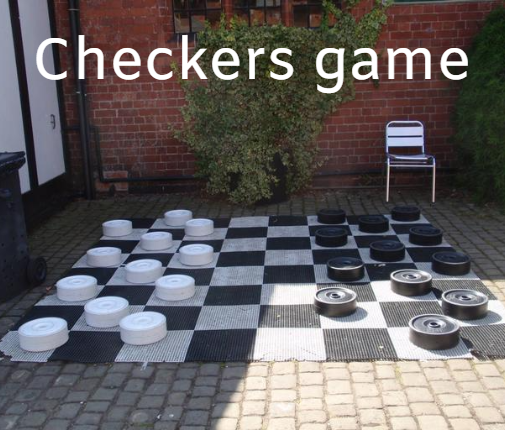Sharpen Your Mind: Why Checkers is a Surprisingly Good Mental Workout
The game of checkers often gets overlooked, labeled as just a simple pastime for children. However, this classic game offers a treasure trove of cognitive benefits that can sharpen your mind and enhance your mental fitness. Engaging in checkers is more than just moving pieces; it’s a strategic interplay that boosts various mental skills. This article explores the different ways checkers serves as a powerful exercise for your brain.
Strategic Thinking & Planning: Checkers as a Mental Chessboard
Foresight and Planning: Anticipating Opponent Moves
In checkers, every move counts. Players must think ahead, predicting the opponent's next action. This puzzling anticipation cultivates foresight, a critical life skill. Effective strategizing demands that you evaluate potential outcomes, making it similar to facing real-life challenges.
Problem-Solving Prowess: Navigating Complex Game Scenarios
Checkers game workout means that each game presents unique scenarios. Players often face situations that require quick problem-solving. Over time, this can lead to improved analytical skills that extend beyond the game board. Finding solutions in checkers mirrors tackling daily problems, enhancing your overall decision-making abilities.
Adaptability and Flexibility: Responding to Unexpected Challenges
Checkers isn’t always predictable. Checkers game workout an unexpected move by your opponent forces you to reassess your plan. This adaptability promotes flexible thinking. Such skills are crucial in fast-paced environments, where change is constant and being able to pivot can lead to success.
Enhanced Focus and Concentration: The Checkers Concentration Boost
Sustained Attention: Mastering the Game's Demands
Playing checkers requires serious focus. Players must concentrate on both their moves and their opponent's strategy. This practice encourages sustained attention, a skill that translates to improved performance in academics and work.
Minimizing Distractions: A Focused Mental State
The game provides a distraction-free zone. Players become fully immersed, reducing outside distractions. This focused state can be calming, helping you learn to tune out the noise and concentrate on what truly matters.
Improved Cognitive Control: Directing Attention and Effort
Checkers enhances cognitive control as players learn to manage their attention effectively. This skill enables you to better allocate your mental energy to tasks that require deep focus, improving productivity in various areas of life.
Memory and Recall: Remembering the Board and Past Moves
Working Memory Enhancement: Tracking Pieces and Plans
Maintaining awareness of the pieces on the board boosts your working memory. Players must keep track of their pieces and the moves they’ve made. This process strengthens neural pathways related to memory, benefiting everyday recall. Very effective checkers game workout.
Long-Term Memory Improvement: Learning from Past Games
Reviewing past games helps players develop strategies for future matches. This reflection can lead to a marked improvement in long-term memory. Remembering experiences correctly allows for better preparation in both games and daily situations.
Pattern Recognition: Identifying Recurring Game Situations
Checkers cultivates pattern recognition skills. Experienced players will start to recognize strategies and tricks that often repeat. Being able to identify these patterns helps in making quicker decisions, enhancing overall game performance.
Spatial Reasoning and Visual Perception: Checkers' Geometry of the Mind
Visual-Spatial Skills: Mentally Manipulating Pieces on the Board
Playing requires a strong understanding of spatial relationships. Players must visualize how pieces interact on the board, enhancing their visual-spatial skills. These skills are essential in fields like math, architecture, and engineering.
Geometric Thinking: Understanding Checkers' Spatial Dynamics
Checkers involves geometric thinking, as players must maneuver pieces in ways that cover significant area while controlling opponent movements. This active engagement helps develop a keen sense of space, which is valuable in many real-world applications.
Mental Rotation: Visualizing Board Configurations
Players often need to mentally rotate the board to anticipate outcomes. This practice enhances mental rotation abilities, fostering creativity and innovation. A strong capacity for visualization can lead to improved problem-solving in diverse situations.
Emotional Benefits: Checkers for Stress Relief and Mindset
Stress Reduction: The Calming Effects of Strategic Engagement
Engaging in a game of checkers can be an excellent stress reliever. The concentrated thinking involved allows players to escape daily pressures temporarily. This mental shift can provide clarity and reduce anxiety.
Patience and Perseverance: Cultivating a Resilient Mindset
Checkers requires patience; an essential trait in both gaming and life. Players learn to manage disappointment after a loss, fostering perseverance. These emotional skills are critical when facing challenges outside the game.
Healthy Competition: The Joy of Strategic Victory
The thrill of competition brings joy. Winning a match boosts self-esteem and can enhance your overall mood. This sense of accomplishment contributes to a positive mindset, encouraging you to pursue other challenges with enthusiasm.
Conclusion: Unleash Your Mental Potential with Checkers
Checkers is more than a children’s game; it offers immense cognitive benefits. From improving memory and focus to fostering strategic thinking, this classic game is a powerful mental workout.
Checkers game workout. Key Takeaways
The Cognitive Perks of This Classic Game
Enhances strategic thinking and planning skills.
Boosts focus, concentration, and cognitive control.
Improves memory and recall through active engagement.
Develops spatial reasoning and visual perception.
Actionable Steps: Integrating Checkers into Your Brain Training Routine
Start by playing checkers regularly, either online or with friends.
Challenge yourself to learn new strategies or variants of the game.
Reflect on past games to identify improvement areas.
Further Exploration
Advanced Checkers Strategies and Resources
Dive deeper into checkers strategy through online resources or books. Engaging with advanced tactics will not only sharpen your skills but keep the game exciting. Explore community forums to connect with fellow enthusiasts for a richer gaming experience.
Embrace checkers as a tool for mental growth. Start today, and watch your cognitive abilities flourish!

